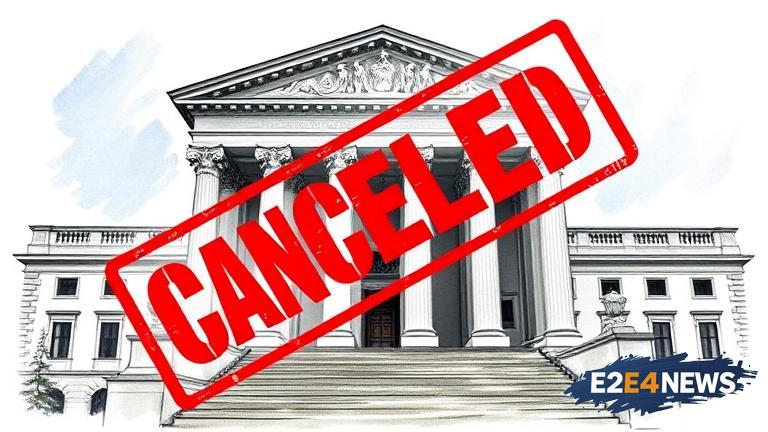A federal judge has issued a temporary injunction against the Trump administration’s cancellation of humanities grants, citing potential harm to recipients and the public interest. The decision comes after a lawsuit was filed by a group of grant recipients and organizations, who argued that the administration’s actions were arbitrary and capricious. The judge’s ruling means that the grants will continue to be funded until a final decision is made in the case. The Trump administration had announced plans to cancel the grants, which were awarded by the National Endowment for the Humanities, citing a need to reduce spending. However, the judge found that the administration had failed to provide adequate justification for the cancellations and had not followed proper procedures. The grants in question were awarded to support a range of projects, including research, education, and cultural preservation. The recipients of the grants argued that the cancellations would cause significant harm, including the loss of jobs and the disruption of ongoing projects. The judge’s decision is a significant victory for the grant recipients and organizations, who had argued that the administration’s actions were an attack on the humanities and the arts. The case is part of a larger debate over the role of government funding for the arts and humanities, with some arguing that such funding is essential for promoting cultural and intellectual development, while others argue that it is a waste of taxpayer dollars. The National Endowment for the Humanities is an independent federal agency that provides funding for a range of projects, including research, education, and cultural preservation. The agency has been the subject of controversy in recent years, with some lawmakers calling for its elimination. However, the agency has also received widespread support from scholars, artists, and cultural institutions, who argue that its funding is essential for promoting American culture and intellectual development. The judge’s decision is likely to be appealed by the Trump administration, which has argued that the grants are not a priority for federal funding. However, the decision is also likely to be seen as a significant victory for the humanities and the arts, which have faced significant challenges in recent years. The case highlights the importance of government funding for the arts and humanities, and the need for policymakers to prioritize such funding. It also underscores the importance of the judiciary in protecting the rights of grant recipients and ensuring that government agencies follow proper procedures. The decision is likely to have significant implications for the future of government funding for the arts and humanities, and may set a precedent for future cases. The judge’s ruling is a reminder that the government has a responsibility to support the arts and humanities, and that such funding is essential for promoting American culture and intellectual development. The case is a significant development in the ongoing debate over the role of government funding for the arts and humanities, and is likely to be closely watched by scholars, artists, and cultural institutions. The decision is also likely to be seen as a victory for the rule of law, and a reminder that government agencies must follow proper procedures when making decisions about funding. The judge’s ruling is a significant step forward for the humanities and the arts, and underscores the importance of government funding for promoting cultural and intellectual development. The case highlights the need for policymakers to prioritize funding for the arts and humanities, and to recognize the significant contributions that such funding makes to American culture and society. The decision is likely to have significant implications for the future of government funding for the arts and humanities, and may set a precedent for future cases. The judge’s ruling is a reminder that the government has a responsibility to support the arts and humanities, and that such funding is essential for promoting American culture and intellectual development.
